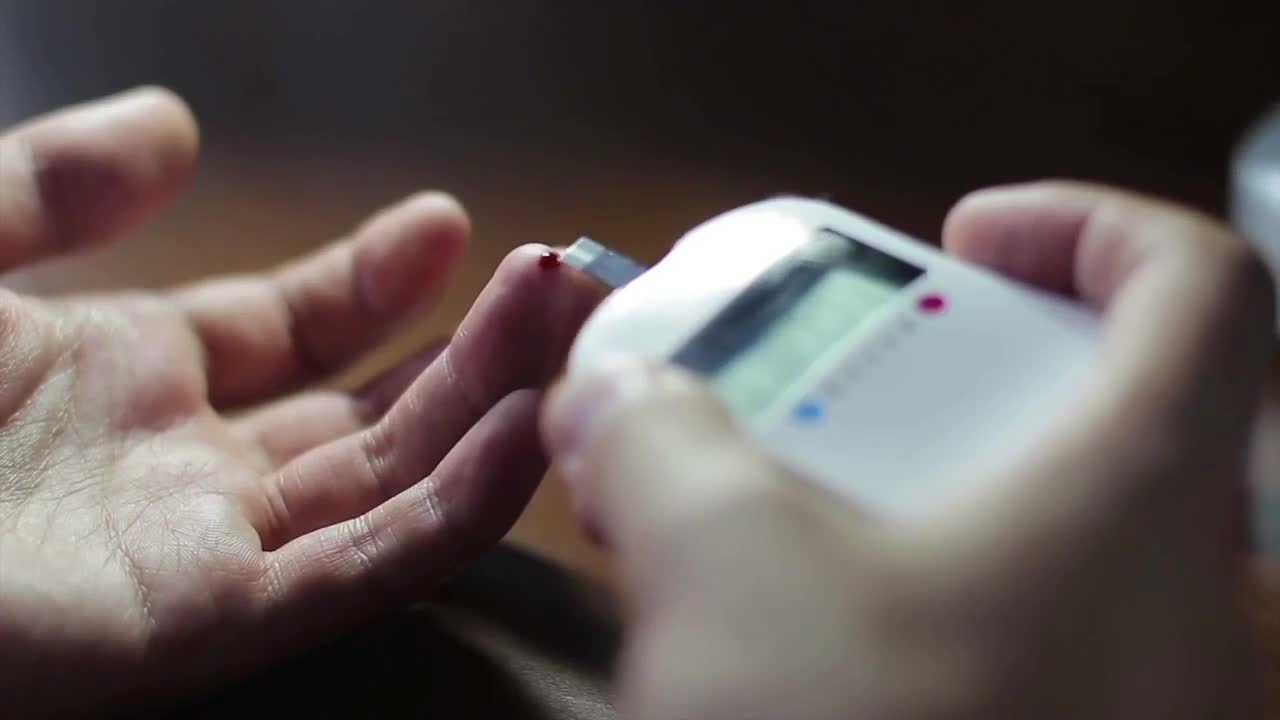LAS VEGAS (KTNV) — Thousands of people here in Nevada have diabetes. Could you be one of them?
If you need answers, UNLV is looking for volunteers to take part in a study aimed at slowing the progression of the disease.
Tonight we introduce you to a man whose family history of diabetes has him taking a big step in protecting his own health.
"To me, unfortunately, it's fatal because my dad passed away from it, you know,"
Ricardo Castro knows firsthand the devastating impact of diabetes. Losing his father to the disease was incredibly difficult, and now he is witnessing his mother suffer from the same condition.
"They just told her yesterday at the doctor's office that she has ulcers on her legs due to diabetes. Your legs swell up and fluids start coming out. If you don't take care of them, they can amputate your legs," Castro said.
Castro said the damage from this disease keeps going.
We first met him at a diabetes workshop in March and caught up with him again to tell him about a clinic that might help find if he has it too.
Doctor's at UNLV's Kirk Kerkorian School of Medicine are looking for volunteers for a diabetes study, targeting two groups: ages 2-45 with a family history of Type 1 diabetes, and ages 2-20 with relatives having the condition.
"This sounds great to me. I'm looking forward to something like that as well," Castro said.
Dr. Kenneth Izuora from UNLV said it's important to screen and monitor people who are at-risk for diabetes, especially now with new FDA-approved diabetes medications also used for chronic weight management.
According to the Southern Nevada Health District, about 10.6% of Nevada's adult population has diabetes, ranking as the seventh leading cause of death in the U.S.
Castro said the first thing to do is find out if you have it.
"I've experienced death through it. Seeing people you love suffer, that hits you hard," he said.
He said the time to act is now.
"Being able to do something about it before it gets to that unfortunate day," Castro said.
The screening for participants is set for Friday, June 7 in Las Vegas. If you are eligible and would like to volunteer for this study, you are urged to contact Kemi Otitoju at 702-671-4351 or by email at kemi.otitoju@unlv.edu.
SOUTHERN NEVADA HEALTH DISTRICT:
Quick Facts:
- Diabetes is the seventh leading cause of death in the United States.
- Diabetes is the number one cause of kidney failure, lower-limb amputations, and adult blindness.
- In the United States, 3 million adults have diabetes and one in five are unaware they have it.
- Type 2 diabetes accounts for approximately 90 to 95 percent of all diagnosed diabetes cases.
- In Nevada, about 10.6percent of the adult population has been diagnosed with diabetes.
- The American Diabetes Association estimates direct medical expense for Nevadans living with diabetes is approximately $2.8 billion.
What is diabetes?
- Diabetes is a chronic medical condition that affects how the body turns food into energy. Diabetes happens when the body does not make or properly use insulin. Insulin is a hormone that converts sugar, starches and other food into energy needed for daily life.
- The cause of diabetes is unknown, although both genetics and environmental factors, such as obesity and lack of exercise, appear to play roles. There are three major types of diabetes.
- There is no cure for diabetes, but losing weight, eating healthy food and being active can help. Taking medication as needed, keeping health care appointments, and getting diabetes self-management education and support are also important.
- Type 1 Diabetes
- Type 1 diabetes is when the body doesn’t produce insulin, the hormone that “unlocks” the cells of the body, allowing glucose to enter and fuel them. It is estimated that 5-10 percent of Americans who have diabetes, have type 1. A person who has type 1 diabetes must take insulin daily to live.
- Type 2 Diabetes
- When type 2 diabetes is diagnosed, the body is producing enough insulin, but doesn’t properly use it, a condition called insulin resistance. Most Americans with diabetes have type 2 diabetes.




